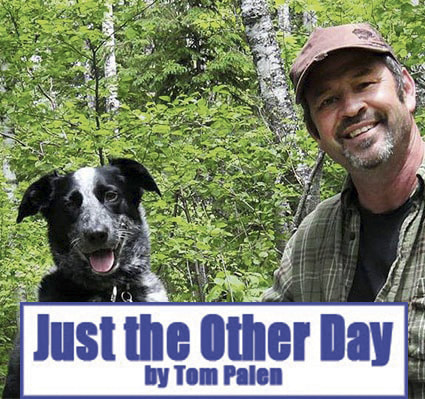Tom Palen,a broadcaster, pilot, writer, and our Guest Columnist! Archives
July 2024
Categories |
Back to Blog
Fueling Memories5/29/2024 As my wife and I travel about the country, we notice the annual jacking up of gasoline prices coincides with the coming of Memorial Day weekend, the kick-off to the summer travel season.
Every year, the big oil companies have another excuse for raising gasoline prices: a natural disaster somewhere in the world, foreign issues, government problems, OPEC raising the barrel price of crude oil, OPEC lowering the price of crude oil, causing a rise in gasoline prices, or fewer swallows returning to San Juan Capistrano. My favorite excuse is always: "Prices went up because of anticipated increased demand and supply." Really? Because of increased demand? Did the coming of Memorial Day catch you off guard? With well over 100,000 employees in the oil industry in the United States alone, not one person put up a post-it note in their cubical to remind them, "Memorial Day will be the last Monday in May this year. People are going to start traveling for the summer. Make more gasoline." The oil industry could learn a lesson from the sausage makers of the world. Sausage makers know Oktoberfest is celebrated the first weekend of October, so they ramp up production to make more sausage for brats. They never get caught off guard, running short of brats - and they don't jack up the price of these delicious sausages for Oktoberfest. Big oil companies have charged more for nothing for years! Take, for example, the introduction of unleaded fuel in the 1970s. Unleaded fuel has always been more expensive than regular leaded fuel. Why? Lead is not natural to gasoline—it's an additive. I know about the environmental impact of burning lead in gasoline, but why were big oil companies charging more not to add tetraethyl lead? Hmm. A thinner nozzle was used on the unleaded fuel pump handle. The new car itself had a much smaller opening on the fuel filler neck that would prevent the larger regular fuel nozzle from fitting. Some people didn't want to pay for the higher-priced fuel and "punched out" the smaller hole, making it big enough for the larger regular fuel nozzle. Another issue with unleaded fuel was the smell of the exhaust. Ick! When you pulled up behind a car burning unleaded fuel, the scent of the exhaust would get in through your fresh air vents or open windows. Like rotten eggs, the putrid smell would cause you to wrinkle your nose and gag a bit. It was nasty, no doubt about it. Whatever happened to that nasty stench? Did the fuel refineries find a way to eliminate it? Did it disappear, or did we get used to it, accepting it as the new "norm?" I apologize; I've strayed from the subject of this story. It was supposed to be about Memorial Day, initially called Decoration Day. Decoration Day was established by the head of an organization of Union veterans, the Grand Army of the Republic. It was used to decorate grave markers, remembering those who died in the Civil War—both Union and Confederate soldiers. As time went on, people used Decoration Day to decorate the graves of those who died in both World Wars. It became inclusive of those who died in Korea and Vietnam and, eventually, all soldiers who died in any conflict while serving in the US Military branches. Memorial Day didn't become an official federal holiday until 1971. Unfortunately, it has become just a paid day off work to some. How sad. Recently, Melissa and I visited the graves of her ancestors and relatives on her grandma Lucille's side of the family, who are buried in the Coatsville Cemetery, not far from Lancaster, Missouri. It is a quiet country cemetery surrounded by farm fields, with markers in straight rows across the hilly knoll. The grass wasn't really tall that day, but it would soon be ready for a cutting. Many older deteriorating stones were in the cemetery, some of which had broken and fallen to the ground. Very old, weather-worn markers had distorted wording carved into the limestone that was hard or impossible to read. Sometimes, we could make out a year that indicated the ones who had died in the Civil War. Although Coatsville Cemetery was old, very small, and on a narrow gravel road in the countryside, it was not forgotten. Some of the graves had small American flags near the base, and some were marked with flowers and other such decorations. Someone had taken the time to lift fallen stones, propping them up against the remaining base. It warmed my heart to see this sign of respect for the long-dead. Among the older stones were a few newer markers for those who had passed more recently. Coatsville is still an active cemetery. There are cattle guards at the driveways entering the cemetery. Still, a broken- farm fence surrounding the perimeter would allow animals - wild or livestock from nearby farms - to cross into the grounds. Still, it was clear someone had been taking care of this site. The last time we visited, a big cedar tree stood on the grounds. It was now gone, but a trickle of smoke was still rising from the smoldering stump that was once the base of the big tree. The tree either died or was struck by lightning. A new, tall flag pole was not there the last time we were. Who removed the tree? Who put up that flag pole? I wondered further, who maintains this lot? I assumed the county must maintain it. We continued to walk around looking for headstones bearing the name Veatch, Melissa's relatives. A lady pulled into the cemetery, driving a Polaris Ranger. She approached us and was friendly in her inquiry about why we were there. She told us her husband, a farmer working in the field across the way, called her from his tractor to let her know people were in the cemetery. We learned her name was Sara Morrow. She and her husband are the caretakers of the Coatsville Cemetery. She explained her son, who died at a young age in the late nineties, was buried here and pointed to his marker. There was sadness in her eyes and voice as she spoke of her son. She is still grieving her loss. I felt her pain. Melissa told her we were looking for Veatch graves. She pointed to a headstone and then told Sara that her great-uncle, Lala Veatch (pronounced lā-lee), owned the 80-acre farm on the hilltop just beyond the valley. Sara said, "Oh! I knew Lala. I still remember his laugh." Melissa mentioned she still has relatives who live in the area—"Lyle and Pat York. Pat worked at the post office," she said. Sara's eyes lit up. "I saw Lyle just last week," she said. The two women made a connection. Melissa had grown up visiting this and other country cemeteries each year around Memorial Day, brought by her grandparents and then her parents. It had become a family tradition to remember their ancestors and share the stories while walking amongst the graves. Sara stayed and chatted with us for twenty minutes or so. She gave us a good education on country cemeteries. Sara had learned, from being on the board of directors, that the man who kept the grass mowed would no longer be able to do so. She and her husband had assumed the lawn care for the grounds. "The county doesn't provide any funding for these old cemeteries - at least not in Missouri," Sara said. "The only funding we have is from donations, and we spend a lot of our own money to make improvements." Those improvements included the new flag pole, planting new trees, and buying flags to ensure all veterans' graves were marked with an American flag for Memorial Day and Veterans Day. They purchased larger flags to fly across the front of the cemetery. The Morrow's raised old tombstones and placed them on new concrete bases to preserve them, among other things. "We're trying to raise enough money now to replace all the old fencing around the perimeter," she said. Her passion for keeping this cemetery well-kept was heartfelt. When working on projects, people often give me tips. The tip is generally fifty or one hundred dollars. We are not rich people, but we are not starving either, so when I get these tips, we give them to others who may need the money. I remembered a one hundred dollar bill in the car we hadn't given away yet. Listening to Sara talk, I smiled, thinking we had just found a good use for that money. Melissa was thinking the same thing. Sara expressed great appreciation for the gift—one would have thought we had just given her thousands! We, in turn, expressed our gratitude for the Morrows' work keeping the cemetery nice. This Memorial Day, when you're out visiting loved ones who have passed, especially in small rural cemeteries, please look for a donation box. If you don't find one, take the time to call your county and find out if the cemetery maintenance is funded or done by donation. Find out who maintains the grounds, and send them a donation and a note of gratitude for their hard work. I don't notice the exhaust fumes from unleaded gasoline anymore. Did they go away, or did I just get used to the scent - taking it for granted? Let us never forget nor take for granted why we celebrate Memorial Day: to honor the veterans and loved ones who lay to rest in the Coatsville cemetery and similar small cemeteries throughout our great nation. Let's seek out and support the Morrow's all over our country, who quietly take care of these cemetery grounds. Thank you to all who served our country, sacrificing their lives for our freedom! You are remembered this Memorial Day and always.
0 Comments
Read More
Leave a Reply. |

Contact Us:
Phone: 507.238.9456
e-mail: [email protected]
Photo Press | 112 E. First Street |
P.O. Box 973 | Fairmont, MN 56031
Office Hours:
Monday-Friday 8:00 a.m. - 4:00 p.m.
Phone: 507.238.9456
e-mail: [email protected]
Photo Press | 112 E. First Street |
P.O. Box 973 | Fairmont, MN 56031
Office Hours:
Monday-Friday 8:00 a.m. - 4:00 p.m.
Proudly powered by Weebly



 RSS Feed
RSS Feed